Muhammad Ali, by the Book
He may be the only athlete who merits an entire college course. Here are the books that would make up the curriculum.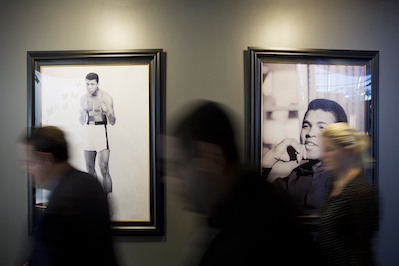
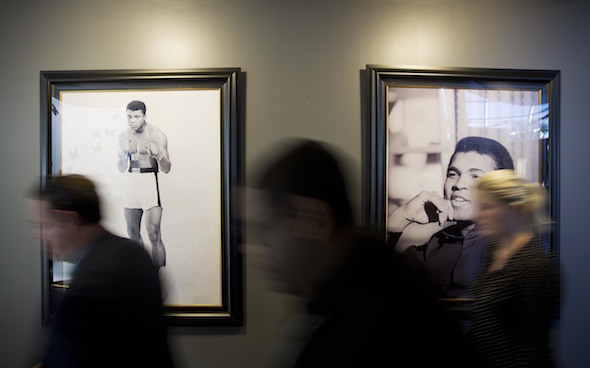
People pass by photos of Muhammad Ali before a news conference Monday regarding the boxer’s funeral. (David Goldman / AP)
Muhammad Ali is probably the only athlete who merits an entire college course. After more than 30 years of reading and writing about him, here are the books I would choose for the curriculum.
Sting Like A Bee: The Muhammad Ali Story, by José Torres and Bert Randolph Sugar (1971)
This is the best book written about Ali before he began the first comeback, which resulted in his epic fight with Joe Frazier. Author José Torres was a fine fighter in his own right. He had been light-heavyweight champion just a few years before and worked under Ali’s longtime trainer, Angelo Dundee. The book was co-authored by the late, great, boxing historian, Bert Randolph Sugar. The 2001 reissue has an epilogue by Budd Schulberg covering Ali’s career from 1971 to his last fight and sketches by LeRoy Neiman.
Muhammad Ali: A Portrait in Words and Photographs, by Wilfrid Sheed (1975)
The best Muhammad Ali coffee-table book, with spectacular, double-page, color photos, including one of Ali’s gloved right fist creating a halo of sweat around George Foreman’s head. Sheed was a passionate fan and a great writer, perhaps the wittiest to cover Ali. Sample: Ali’s hysterical performance at a news conference “wouldn’t have fooled a French film critic.”
King of the Hill (1971) and The Fight, by Norman Mailer (1975)
Norman Mailer is the uncontested heavyweight champion of Ali writers, as proven in “The Fight,” his book-length account of the events leading up to, during and after Ali’s greatest victory, the 1974 knockout of the reigning heavyweight champion, George Foreman, in Zaire. Shorter but equally riveting is “King of the Hill,” his 1971 Esquire piece on the “Super Fight,” Ali’s first bout with Joe Frazier, subsequently published in soft-cover.
Neither A.J. Liebling nor Ernest Hemingway at their best could lay a glove on either of these works. Like Ali himself, they will probably outlive the sport of boxing.
Shadow Box: An Amateur in the Ring, by George Plimpton (1977)
Ali is merely one of the stars in George Plimpton’s most dangerous participatory sports outing. In addition to working out and ruminating with Ali, Plimpton steps into the ring with former light-heavyweight champ Archie Moore, an early opponent of Cassius Clay. Recently reissued in paperback by Little, Brown and Company.
Muhammad Ali Reader, edited by Gerald Early (1998)
If you’ve never read anything on Ali, this is the book you should start with. Gerald Early excerpted some classic writing on the champ, including Mailer’s and Plimpton’s, but he also included some pieces you won’t find easily elsewhere, such as one by the great A.J. Liebling, who saw an early fight in which the young Cassius Clay was knocked down by a journeyman named Sonny Banks. (Ali had predicted in rhyme, “Banks like to mix/He’ll go in six,” and he was right.) Liebling noted: “Honest effort and sterling character backed by solid instruction will carry a man a good way, but unearned natural ability has a lot to be said for it.” In the end, Liebling prophesied that Clay “was the kind of Hero likely to be around for a long while.” Bingo.
Also included are stellar observations on The Greatest by Murray Kempton, Garry Wills and Nigerian poet Wole Soyinka, along with some pretentious nonsense from Joyce Carol Oates. Like Satchel Paige said, “You pays your money, and you takes your choice.”
Muhammad Ali: The Unseen Archives, by William Strathmore (2001)
This oversized photo history of Ali’s life, with excellent text by British sportswriter William Strathmore, is the best Ali photo collection ever put between two covers. You probably haven’t seen most of these photos because they are from the files of the Daily Mail—what American paper is going to show Ali with bowler and bumbershoot, or rare knockdowns by Ali of British fighters in 1971? Or Ali being escorted to a fight by two stone-faced bobbies. At 380 pages, this book is a feast for Ali fans and a must for Ali collectors.
Ali: The First Heavyweight Champion of Rap, edited by George Lois (2006)
If Wilfrid Sheed’s “Muhammad Ali” is the ultimate coffee-table book, then George Lois’ work is the ultimate Ali bathroom book. The advertising genius (“I want my MTV!”) collected photos, illustrations and cartoons and juxtaposed them with Ali’s most famous poems, insults, quips and bits of overheard conversation.
One of my favorites is an exchange between Ali and a young boy in an Arizona restaurant:
Boy: It’s you! It’s you! I knew you would be here. My mom said no, but it’s you!
Ali: Well, who am I?
Boy: You’re Muhammad Ali! Champion of the world! The greatest ever!
Ali: Does you mom feel that way, too?
Boy: Naw, she says you’re just another nigger.
(After a deafening pause)
Ali: I never heard that word before. What’s it mean?
Boy: It’s short for Negro.
(Ali’s laughter lit up the dining room.)
Bouts of Mania: Ali, Frazier, and Foreman – and an America on the Ropes, by Richard Hoffer (2014)
Richard Hoffer, a Sports Illustrated veteran, was the first to pick up on the fact that Ali, Joe Frazier and George Foreman made up the greatest round robin of heavyweight champions in the history of boxing. His accounts of the great fights are never less than thrilling.
Blood Brothers: The Fatal Friendship Between Muhammad Ali and Malcolm X, by Randy Roberts and Johnny Smith (2016)
Nearly 53 years after Cassius Clay discovered the Black Muslims, Randy Roberts and Johnny Smith became the first writers to do a comprehensive study of Ali’s relationship with Malcolm X and the influence that Malcolm had on Ali—which, it turns out, was enormous. “More than anyone else,” Roberts and Smith contend, “Malcolm molded Cassius Clay into Muhammad Ali,” transforming the “Louisville Lip,” the showman who promoted boxing matches into spectacles, from an entertainer to a political spokesman and minister.
This may well be the most important sports book of 2016.
Your support matters…Independent journalism is under threat and overshadowed by heavily funded mainstream media.
You can help level the playing field. Become a member.
Your tax-deductible contribution keeps us digging beneath the headlines to give you thought-provoking, investigative reporting and analysis that unearths what's really happening- without compromise.
Give today to support our courageous, independent journalists.


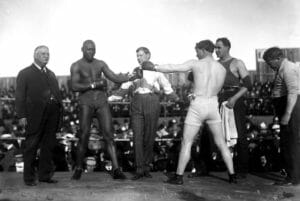
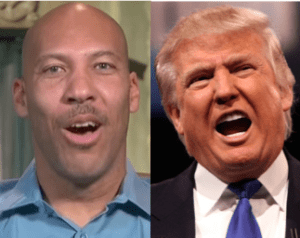
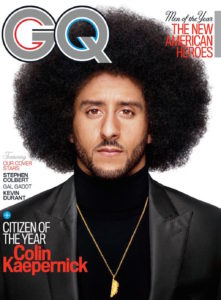
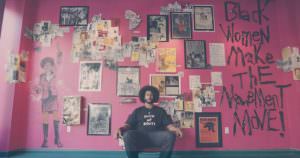
You need to be a supporter to comment.
There are currently no responses to this article.
Be the first to respond.